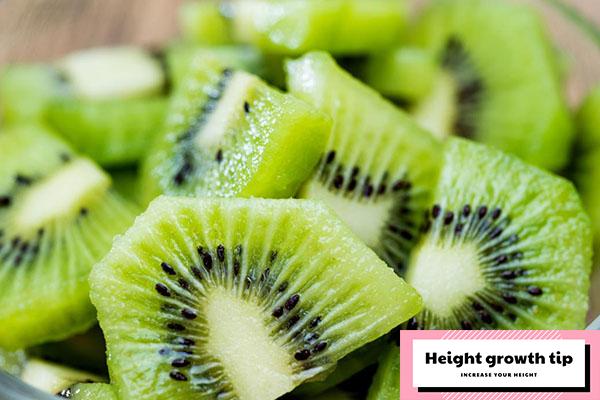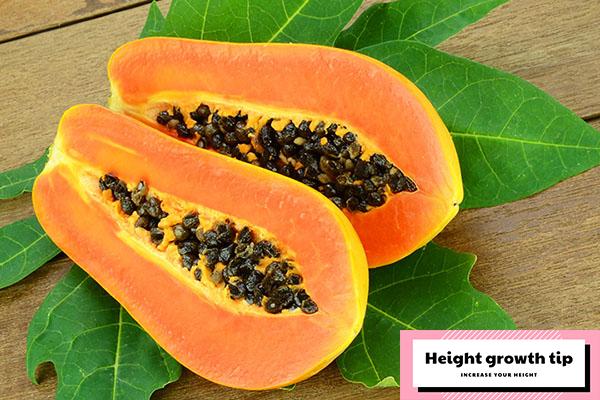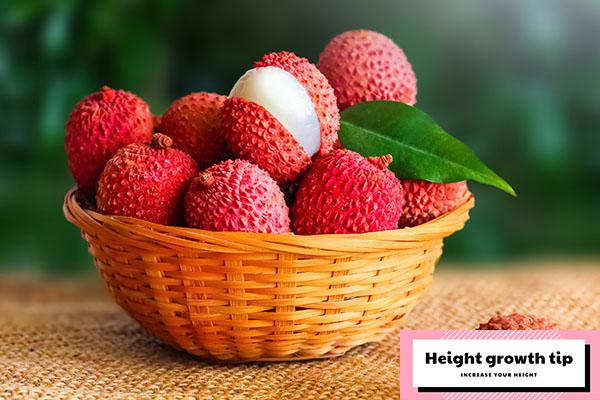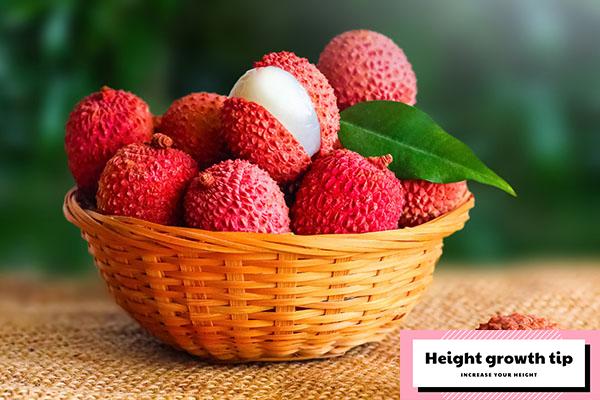One remarkable strategy to ensure that you’re furnishing your body with the necessary nutrients for growth is to incorporate a diverse array of fruits into your daily diet. In this article, we will delve deeper into the intricate relationship between nutrition and growth, with a specific emphasis on the indispensable role of fruits in fostering healthy development. We will uncover the pivotal vitamins and minerals that fruits contain, which are vital for supporting and enhancing your growth potential.
Moreover, we will provide practical insights and tips on how to seamlessly integrate more fruits into your daily dietary regimen. Whether you’re actively striving to attain your maximum height or simply aiming to bolster your overall well-being, the information presented here will illuminate the significance of embracing fruits as an invaluable asset on your journey towards achieving optimal growth and development. So, let’s explore the enticing world of fruits and discover how they can be your ally in realizing your growth ambitions.
Bananas:
Bananas, the year-round nutritional powerhouses, offer a rich tapestry of nutrients that can play a pivotal role in boosting height. Among their impressive attributes is their abundance of magnesium, a fundamental element in the body’s utilization of vitamin D and calcium for bone formation and elongation. Magnesium also serves as a crucial shield against conditions like osteoporosis, which can impede one’s journey to greater height.
While bananas are undoubtedly a commendable addition to your daily diet, it is of paramount importance to practice moderation in consumption. The recommended intake typically falls within the range of one to two bananas per day, striking the delicate balance between reaping their benefits and steering clear of overindulgence.
Berries:
Berries, encompassing a delightful spectrum including blueberries, strawberries, raspberries, and blackberries, are petite, succulent treasures teeming with essential nutrients. They harbor flavonoids that fortify the bones and the tissues surrounding the spine.
Furthermore, berries emerge as an exceptional source of vitamin C, championing cellular growth and tissue rejuvenation. Adequate vitamin C intake actively supports collagen synthesis, a pivotal process in enhancing bone density and fostering bone growth, ultimately contributing to an uptick in stature.
A typical serving of berries generally ranges from half to a full cup per day. The flexibility to savor them on their own, blend them into cereals or yogurt, incorporate them into pancake batter, or craft delectable smoothies provides an effortless and palatable avenue to elevate your nutrient intake.

Oranges:
When it comes to nutrient-rich fruits, oranges reign supreme. Bursting with vitality, they are a treasure trove of essential vitamins and minerals, with vitamin C taking center stage. This crucial nutrient not only aids in tissue growth and repair but also plays a pivotal role in collagen synthesis, vital for maintaining healthy skin and connective tissues. But the orange’s goodness doesn’t stop there; it’s a powerhouse of folate, calcium, potassium, and more, ensuring a holistic approach to your nutritional needs [2].
What’s intriguing is that a humble glass of orange juice boasts more calories, carbohydrates, and nutrients than the fruit itself. So, whether you enjoy an orange as a whole fruit or incorporate it into a variety of delectable dishes, or even opt for the convenience of an 8-ounce glass of orange juice, you’re bound to reap the countless nutritional benefits that this citrus gem has to offer.
Tangerine:
Tangerines, part of the illustrious citrus family, are a delightful addition to your diet, boasting a unique set of health benefits. Like their orange counterparts, tangerines are an excellent source of vitamin C. However, they set themselves apart with an extra dose of vitamin A, known for its pivotal role in preserving eye health and promoting the growth of children. This dual nutritional punch makes tangerines a standout choice in the realm of citrus fruits [3].
In addition to vitamin A, tangerines come armed with a battalion of beneficial nutrients, including potassium, magnesium, copper, manganese, and more. These micronutrients form an essential brigade in the battle to maintain robust bones and ward off weaknesses.
To fortify your skeletal health, making room for four tangerines in your regular diet could be the key to preventing bone frailty and fractures.
Kiwi

Did you know that a 3.5 ounce kiwi fruit contains more vitamin C than an orange? Consuming two kiwis per day for four weeks can significantly boost vitamin C levels and enhance other immune functions.
In addition to vitamin C, kiwis are also rich in other essential nutrients like vitamin E, vitamin A, vitamin B6, vitamin B12, calcium, potassium, magnesium, and iron, all of which contribute to the proper functioning of the body.
Kiwis can be enjoyed as a snack on their own or added to various recipes such as smoothies, salads, marinades, or dressings.
Pineapple:
It’s quite fascinating to discover that incorporating just half a cup of diced pineapple into your evening routine can have a profound impact on the melatonin levels in your bloodstream. This increase can be quite remarkable, with levels of the hormone marker known as aMT6s (6-Sulfatoxymelatonin) surging by an astounding 266% [5].
Elevated melatonin levels effectively act as a signal to your body, indicating that it’s time to transition into a restful slumber, ultimately leading to an enhancement in the quality of your sleep. This improved sleep, in turn, has the potential to stimulate the production of HGH (human growth hormone), a critical factor in facilitating not only height development but also the growth and repair of your body’s cells.
Avocado:
On an average, the consumption of just half an avocado can provide a substantial 18% of your daily recommended intake of vitamin K. This often overlooked vitamin plays a crucial role in the promotion of bone density and fracture prevention. Ensuring an adequate intake of vitamin K can significantly enhance the absorption of calcium and reduce the excretion of calcium through urine, thereby offering comprehensive support to your overall bone health.
To harness the combined benefits of vitamin K and vitamin D for fortifying your bones, consider incorporating chunks of avocado into a refreshing spinach salad, or pair it with protein-rich sources like eggs, tuna, or salmon.
Apple:
Apples, the world’s second-most consumed fruit, come highly recommended by medical professionals due to their exceptional nutritional value. Comprising primarily of water and carbohydrates in a balanced 85:14 ratio, apples are also rich sources of essential nutrients such as vitamin C, vitamin E, polyphenols, and potassium. A recent study has provided compelling evidence that the regular consumption of apples and apple-based products or juices can significantly reduce the loss of calcium from the bodies of healthy women, ultimately contributing to increased bone strength [6].
Incorporating one to two apples into your daily diet is generally sufficient, and it is advisable to enjoy them in the morning. Ensure thorough washing of the apples, and you can relish them either with their skin intact or incorporate them into various dishes like yogurt or cereal for a delicious and nutritious start to your day.
Papaya

Papaya is not only a delicious fruit but also a fantastic source of nutrients that offer numerous health benefits. A medium-sized papaya contains up to 200% of the daily recommended intake of vitamin C, along with high levels of folate, vitamin A, potassium, and magnesium. Furthermore, it is rich in vitamin K, which plays a crucial role in calcium absorption and helps reduce the risk of fractures.
One of the simplest ways to enjoy papaya is to wait for it to ripen, remove the seeds, and consume it as is. Alternatively, you can add it to desserts, smoothies, or salads to enhance their flavor and nutritional value.
Passion Fruit:
Passion fruit is not just any ordinary fruit; it’s a treasure trove of nutrients that can significantly enhance your overall health. Packed with a wealth of essential minerals such as calcium, phosphorus, magnesium, and iron, passion fruit emerges as a champion in the realm of bone health. The minerals it boasts are renowned for their ability to fortify your bones, making them stronger and more resilient. For those grappling with osteoporosis, introducing passion fruit into your daily diet can be a game-changer.
But how can you savor the delectable goodness of passion fruit? There are countless delightful ways to do so. You can start by indulging in the pure, unadulterated joy of consuming it raw, perhaps with a generous dollop of creamy goodness. Alternatively, you can get creative by mixing passion fruit with milk, creating a creamy and exotic concoction that tantalizes your taste buds. For those who love a touch of zing, incorporating passion fruit into salsa or yogurt adds a refreshing twist to your meals. If you’re a fan of refreshing beverages, blending passion fruit into smoothies is a surefire way to enjoy its exquisite flavor while reaping its nutritional benefits. For a savory adventure, consider using passion fruit as a delectable sauce to accompany white fish or meat, adding a burst of tropical flair to your culinary creations.
Guava:
Guava, the unassuming fruit that packs a punch when it comes to nutrition. This fruit is nothing short of a nutritional powerhouse, offering a cornucopia of essential nutrients that can elevate your well-being to new heights. Surprisingly, guava boasts more vitamin C than the mighty orange, making it a formidable defender of your immune system. But that’s not all; it also generously provides vitamin A, calcium, potassium, and iron, all of which play pivotal roles in keeping you healthy.
Guava’s abundance of vitamin C not only strengthens your immunity but also promotes robust digestive health, ensuring that your gastrointestinal system operates smoothly and efficiently. Additionally, the calcium content in guava contributes to maintaining strong bones, while potassium helps regulate blood pressure and heart health. Furthermore, the iron in guava supports the growth and repair of skeletal muscles, making it an excellent choice for those seeking to enhance their physical performance.
Lychee

Lychees, akin to apples, boast a composition that is predominantly water and carbohydrates, with an approximate ratio of 82% water and 16% carbohydrates. Beyond their hydrating properties, lychees are a treasure trove of essential nutrients, including vitamin C, copper, potassium, and an array of antioxidants that confer a multitude of health benefits. These benefits encompass bolstering bone health and facilitating the body’s natural detoxification processes.
Incorporating 8 to 10 succulent lychees into your daily intake can furnish the average adult with their recommended daily allowance of vitamin C. The delectable, sweet, white flesh of this exotic fruit is the edible gem, best relished in its fresh, natural state. When lychees are dried, their pulp takes on a delightful sweetness with a subtle hint of tartness.
Grapes:
Grapes, another formidable addition to your dietary arsenal, can play a pivotal role in your quest to reach greater heights, both metaphorically and literally. These tiny globes of goodness harbor a wealth of essential minerals vital for maintaining robust bone health, such as manganese and potassium. Moreover, they are packed with essential vitamins, including B, K, and C, which fortify your skeletal system and work as a deterrent against the onset of osteoporosis.
A standard serving size for grapes is generally regarded as half a cup, equivalent to approximately 16 grapes. It is prudent, however, to exercise moderation and avoid exceeding one cup, as an excessive intake of fiber can potentially lead to discomfort such as indigestion or nausea.

